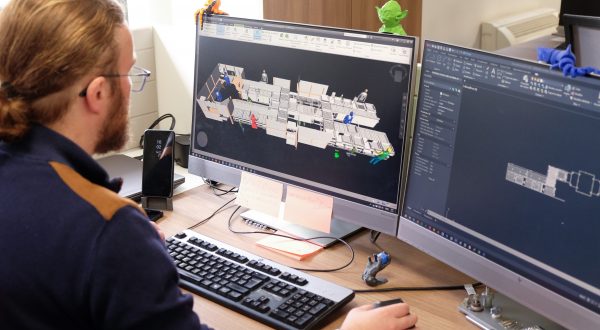The plant of the future captures more than 40% of global capital investment
Reading time: 3 min
A barometer by the Fives Plants of the Future Observatory reports that 41% of global capital investment projects are related to Plant 4.0.
![]()
Presented as the fourth industrial revolution, Plant 4.0 or “the plant of the future” breaks down the barriers between the physical and digital worlds and integrates digital technologies (Internet of Things, virtual reality, cobotics, etc.) within industrial processes. Beyond the technological aspects, the transformation also has economic, environmental and social implications. It is leading to an upheaval within industry that may entail a comprehensive reorganisation of existing tools.
This new generation of plants harbours substantial potential for re-starting world industrial momentum by making it possible to produce more efficiently while limiting environmental impact and improving workplace health and safety.
The plant of the future concept has been a focus of media attention for the past several years, but what about concrete projects? The Fives Plant of the Future Observatory sought to find out by introducing a global capital investment barometer in 2016. It is based on a real-time analysis of published articles listing significant capital investment projects in the industrial sector. A total of 3,412 projects in 162 countries around the world were reviewed.
Published in March 2018, the barometer showed that 41% of all worldwide capital investment projects in 2017 are related to the plant of the future. Projects are considered to fall into this category if they meet at least one of the following six criteria: digitalisation, flexibility, environmental protection, energy efficiency, integration into the local economy, and efforts made on social issues.
“There is significant momentum on the ground but this is just the beginning of the transition”
The barometer shows that digitalisation remains the most frequent investment criterion – involving 17% of projects – while social issues account for only 6.2% of all projects. The energy sector arrives in first place in terms of the number of projects and the amounts invested, followed by the chemical and automotive industries. A further noteworthy finding is that these investments are expected to create 600,000 jobs in coming years. Beyond the barometer findings, Thomas Leseigneur, Innovation Manager at Actemium – the VINCI Energies brand specialising in industrial processes – remains circumspect when it comes to interpreting the study. “We indeed see significant momentum on the ground and strong awareness, among industrial managers, of the potential that digital technologies, evolution and technological disruption hold out. However, there is a pressing need to provide guidance in how the technologies should be used. We tend to look at these subjects from a technological vantage point. This is just the beginning of the transition,” he says. “To undertake a transformation project of this type, industrialists must define a vision and be able to enlist all members of their organisation. The use of tried and true methods well before the advent of the plant of the future concept – such things as, for example, lean manufacturing – may prove especially efficient with the addition of digital technologies.”
Learn more:
https://www.usinenouvelle.com/


